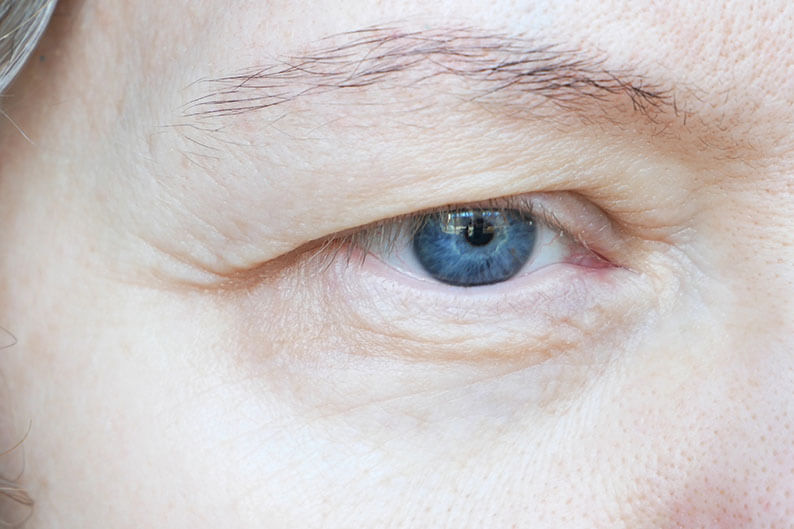Ptosis
Ptosis is drooping of the upper eyelid. The lid may droop only slightly or it may cover the pupil entirely. In some cases ptosis can restrict and even block normal vision.
Congenital ptosis, or ptosis that is present at birth, requires treatment for normal visual development. Uncorrected congenital ptosis can cause amblyopia, or lazy eye. If left untreated, amblyopia can lead to permanently poor vision.
Except in mild cases, the treatment for childhood ptosis is usually surgery to tighten the levator muscle that lifts the eyelid. In severe ptosis, when the levator muscle is extremely weak, the lid can be attached or suspended from under the eyebrow so the forehead muscles do the lifting. Children with ptosis, whether they have had surgery or not, should be examined annually by an ophthalmologist for amblyopia, refractive disorders, and associated conditions.
Ptosis in adults is commonly caused by separation of the levator muscle from the eyelid as a result of aging, cataract or other eye surgery, an injury, or an eye tumor. Adult ptosis may also occur as a complication of other diseases involving the levator muscle or its nerve supply, such as diabetes.
If treatment is necessary, it is usually surgical. Sometimes, a small tuck in the levator muscle and eyelid can raise the lid sufficiently. More severe ptosis requires reattachment and strengthening of the levator muscle.
The risks of ptosis surgery include infection, bleeding, and reduced vision, but these complications occur very infrequently. Although improvement of the lid height is usually achieved, the eyelids may not appear perfectly symmetrical. In rare cases, full eyelid movement does not return.






